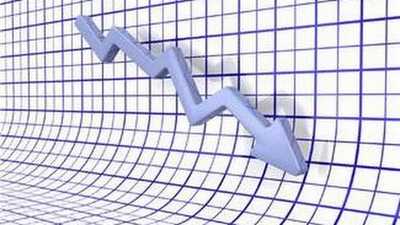| Home | About | Archives | RSS Feed |

The Independent Investor: The Next Recession
 |
Over half the economists on Wall Street believe that by the end of 2020, we will experience our first economic downturn in years. If so, when might you begin to prepare for a rocky two-year period for all of us?
The good news is that we still have another year or so of stock market gains, job growth and more importantly, wage growth. As it stands, the U.S. is currently enjoying its second-longest economic expansion in history with an unemployment rate that hasn't been this low in decades. Wage growth, after languishing for years, is expected to top 3 percent by the end of 2018, while GDP could achieve greater than 3 percent this year and a further 2.5 percent next year.
So how does an economy go from blue skies to dark clouds in so short a time? This economic expansion is now entering its final stage, according to economists. As the good times grow, investors and consumers tend to overborrow and overspend. That's human nature, but it almost always leads to inflation rising, which touches off a rise in interest rates that ultimately slows the economy.
By that time, consumers are back in debt and paying more interest on that debt, while corporations are stuck with an overabundance of goods produced that no one wants. So, everyone pulls back, causing the economy to slow, and the rest is history.
Normally, a recession will span a year or two before the economy recalibrates. In the meantime, the stock market falls anywhere from 15-30 percent and the mood is somber. I have seen it repeatedly in my career. And yet, for some reasons, investors always act as if this is some new startling new development.
The timing of a recession can always be called into question. Any number of things could prove to be a tipping point in ushering in a recession sooner than expected. In 1991, skyrocketing oil prices proved the culprit. In 2001, the dot-com bubble caused a year or two of declines, in 2007, it was a housing bubble. This time around there are several "what ifs" that could hasten our demise.
Right now, a global trade war, instigated by Donald Trump, could tip the economy (both here and abroad) into recession. Trump's latest threat: levying tariffs on almost $200 billion in Chinese imports, would certainly elicit a like response from the Chinese. Tariffs on goods of that proportion would drive both economies into recession.
A crisis in Europe could also hit us hard. Italy is none too stable right now. Populists forces might set in motion their exit from the European Community. That would cause a great deal of instability among European nations, the Euro, and their economies. That, too, could tip our country, as well as their own, into recession.
Oil prices might prove to be our downfall once again if geopolitical events among countries in the Middle East (Iran, Syria and Saudi Arabia) come to blows. An escalating conflict there would surely send oil prices back over $100/barrel with negative consequences for the U.S., as well as other global economies.
Finally, U.S. interest rates could move higher in direct response to our president's actions towards our global allies and enemies. In the last two months, foreigners have reduced their U.S. Treasury holdings by about $10 billion. Russia has reduced their holdings by half. That is a relatively small amount, but as more and more governments realize that "Making America Great Again" will be at their expense, why should they hold our bonds?
China, for example, in response to Trump's tariff threats, could respond by dumping our treasury bonds. That would cause interest rates here at home to spike higher. That would cause even more panic among foreign holders, who would be happy to sell more of our bonds. I could see a nasty chain reaction, a sort of dot. com-like bond sell-off, which could spread throughout the economy and the stock market.
Barring any of these worries, however, we still have some clear sailing ahead for our economy. The stock market usually begins to discount a recession 6-9 month ahead of time, so it won't be for a year or more before we need to prepare for the inevitable, which would be just in time for the next election.
Bill Schmick is registered as an investment adviser representative and portfolio manager with Berkshire Money Management (BMM), managing over $400 million for investors in the Berkshires. Bill's forecasts and opinions are purely his own. None of the information presented here should be construed as an endorsement of BMM or a solicitation to become a client of BMM. Direct inquiries to Bill at 1-888-232-6072 (toll free) or email him at Bill@afewdollarsmore.com.

